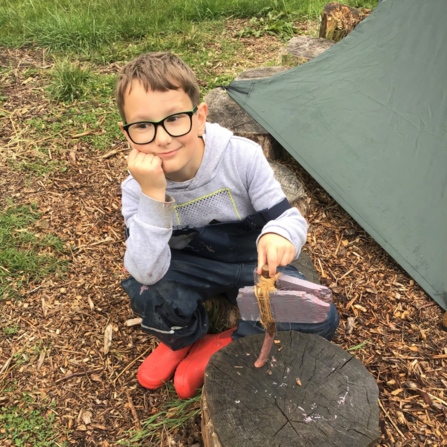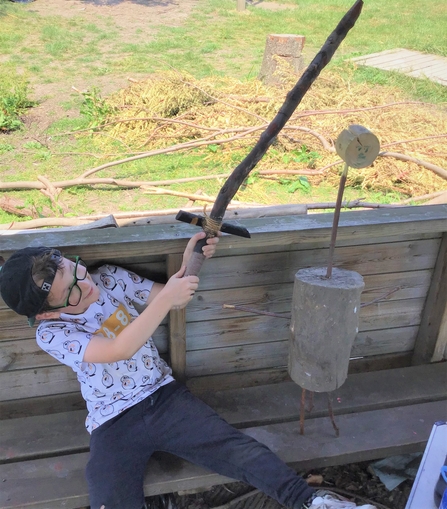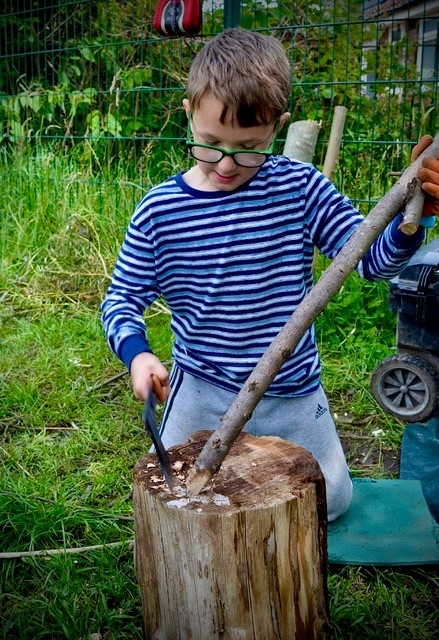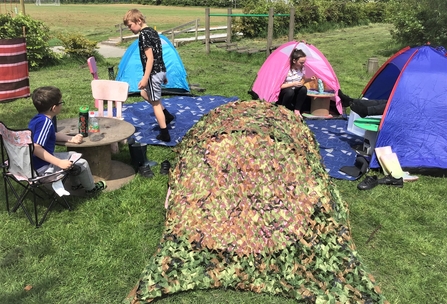
It’s a warm sunny spring day, the bright yellow sun is beaming down and the children at Forest School are gathered beneath a mature silver birch tree enjoying the dappled shade. It’s the second session of a Forest school programme kindly supported by players of People’s Postcode Lottery, and although these children are used to participating in Forest School sessions, the ones that take place on a Tuesday each week have a slightly different feel to them. It’s a small group of 15 mixed age children from three different classes, Forest School happens for an entire day which includes lunch outdoors and the focus of the session is always play!
From beneath the tree one of the participants is heard saying, “wouldn't it be great if we built a community with tents and shelters, somewhere we can all hang out in the shade and play”. Another child shouts out, “I’ll be the Mayor!” and together they charge towards the storage shed in search of tarps, tents, ropes and pegs.




